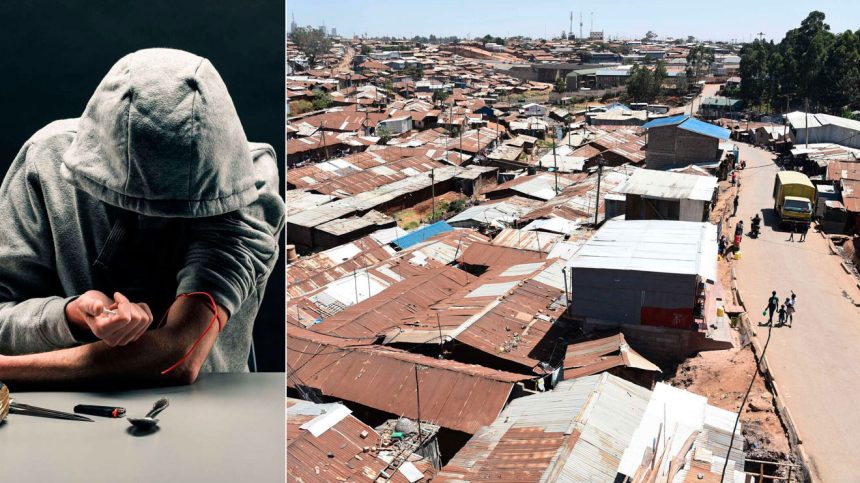For decades, Kibera, one of Nairobi’s largest and most impoverished slums, has faced numerous challenges, from poor infrastructure to high crime rates.
Kibera, known for tight-knit communities and resourceful residents, has been grappling with drug-related issues, primarily the abuse of illicit substances such as cannabis (bhang) by the youth living in the area.
Despite efforts of the authorities to improve living conditions in the area, drug and substance abuse in the slums has steadily grown.
Brian Ochieng (not his real name), a youth who lives in the area, shared his experience on the problem of substance abuse by the youths in the area.
“There are many categories of bhang depending on the amount you have. All of them serve the same purpose. There is everything for everyone, even if you are a beginner. You are introduced to a mild one which costs Sh30, and then others cost as high as Sh200 for one roll, which makes you really high,” Brian said in an interview with Nairobi News.
Samuel Onyango (also not his real name), another resident, spoke about the unique dynamics of the drug trade within the slums.
“We have a language that we speak, known only to the vendor and the customers. That makes it easy to buy and sell drugs without any issues. Our shacks are usually close to one another, and we live with the vendors,” he said.
One of the most worrying aspect is how deeply addiction has taken root in the community.
Many young people in Kibera have found themselves trapped in a cycle of substance abuse, with limited opportunities for employment or personal growth. A recent survey found that within the 25-35 age group, 1.5 million individuals currently use at least one drug or substance of abuse.
Of this group, 1.13 million currently use alcohol, while 488,845 use tobacco. Cannabis use has surged, with 174,142 individuals using it, marking a 90 per cent increase. Nairobi County leads the region in cannabis use, with a prevalence rate of 6.3 per cent.
With the situation deteriorating and numerous reports about drug abuse in Kibera circulating on social media, urgent action is needed.
Addressing the root causes of addiction, including unemployment, accessibility, and affordability of drugs, is essential.
Community-based support programmes, public health initiatives and youth empowerment projects must be implemented to break the cycle of drug abuse. Furthermore, law enforcement efforts should be complemented by rehabilitation and prevention strategies.
In the face of this growing crisis, it is incumbent upon the government, non-governmental organizations, and the community to come together to combat drug abuse in Kibera, offering its residents a chance at a brighter and healthier future.



